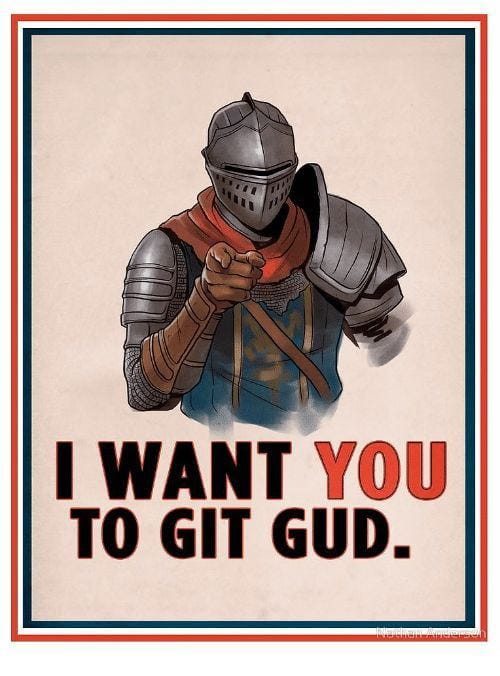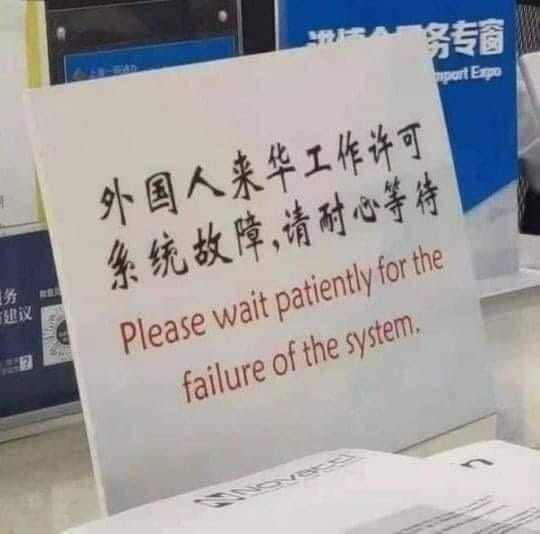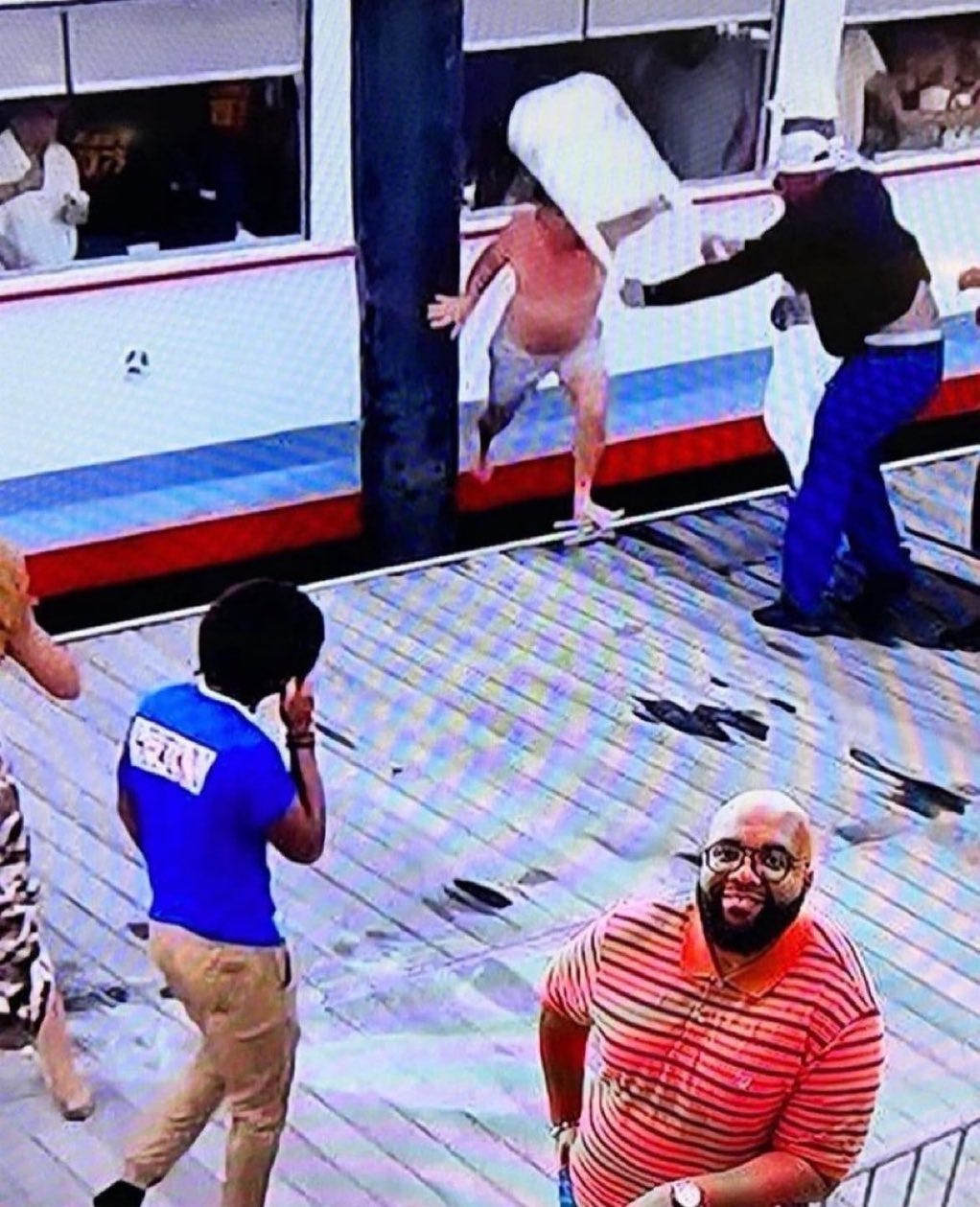Some years are publishing years, and some years are writing years.
2023 was the first year since 2017 during which I had not released at least one book, largely for reasons out of my control, but I’d be lying if I didn’t admit to at least a little bit of agency in the matter. It’s not a thing I notice as the year progresses, because there’s always work to lose oneself in, but come the end of the year with its lists and its Spotify Wrappeds, its Best Ofs and its Recaps, and after 6 years of reward falling in cascade alongside work, it can be tempting to feel as though all that time you’ve spent picking away at the tunnel has led to little of value. But that tends to be the thing you feel if the work is not, itself, reward, and I’ve been lucky enough that since a pikin there has been no single activity I’ve loved more than writing. While 2023 at least saw the publication of some short stories1 and wrapping up my run on Captain America: Symbol of Truth, my only byline of 2024 is a review back in February that I wrote for the New York Times.
And yet 2024 was my happiest year as a writer.
This isn’t one of those “I didn’t write because I was so busy living life” posts, because while life was replete with living (moving, weddings, a new job, a cruise, multiple excursions abroad), I’ve come into the knowledge that I’ve been less interested in the lives of writers and of myself writing than I am in the stylistic evolution of the work.
When I was younger and back before they were paywalled, I would scour the interview series at The Paris Review for their interviews with Styron and Faulkner and Ellison and so many others, writers I was absolutely besotted with, and these fed me so well not because of any glimpse into how these scriveners lived so that I might emulate them but rather for the glimpses they offered into the effect of that living on their writing, the effect of that living on the changes in their writing. Why the long, looping, page-long sentences? Why this particular affinity for allegory? Why this choice of POV? How did you figure out that thing with the semi-colons? If a magazine profile tries to insinuate that a writer wrote the way they did because of the urgency that poverty engenders, I turn away, but if something in their childhood injected into them a lifelong movement toward the natural as reservoir for metaphor or Naturalism as a political and social manifesto, well, inject that into my mf’ing veins.
All of which is to say that while the living increased, enriched, deepened, tested my personhood, it was the writing that made me truly happy.
I drafted a short story for an anthology tentatively scheduled for some time in 2025, but before that, I finished the “Russian novel,” the thing that, since March of 2023, had consumed me, blocked out thoughts of all else, the thing that reminded me, in every session, what it was like to pray and be heard.2 After a bituminous 2023 that saw me actively contemplate retirement, I went into the desert and found myself nourished beyond measure. From the outside looking in, it can resemble spiritually-inspired deprivation. But inside, it’s as warm as the center of a star. There may be occasion to write in greater detail of 2023’s Dark Night of the Soul™ and how this novel in particular was the driftwood I swam to and that carried me to that island paradise in the distance after the annihilation of my ship. But that is for another time. For now, details of my salvation shall lie safely ensconced in my diaries.
I will say that perhaps the biggest reason why writing that novel felt the way that it did—why, over the course of seventeen or so months, I never had a single bad day with the thing—is that I could safely assume it would never see the light of day. The only person who has seen it so far is my agent, and if it went no further than him, I’d still be able to shuffle off this mortal coil a contented man. I sought God and met Him, and that is reward enough. You just gotta let your dreams die a little, and I mean that unironically. A guest pastor at my old church once said “We may not know what the future holds, but we know Who holds the future.” I must have been in high school at the time I first heard that, or freshly matriculated at college, but the line has stayed with me. And as I’ve taken lately to losing track of so many things of late, I’m grateful that I’ve been able to carry this gemstone in my pocket for so long.
I could likely fill a whole new book with all the things writing this one taught me, reminded me, but one nugget I uncovered—unearthed in part through conversations with friends—is just how intuitive the writing process actually is for me. I do outline in my own way, I know the general contours of the plot, the choreography of scenes before I dive into them, but I am not, and could never let myself become, one of those sentence tinkerers. Since the beginning, I’ve wanted to get it right on the first try; that is indeed why we train. But, too often, a writer lives in the mystery until some external validation arrives that they’ve succeeded, an editor or a professor or an agent or an awards committee. I trust flow too much for that. There’s magic in that first go, and perhaps that magic lies in the stakes. Writing can be like building a sandcastle where, no matter how many times you mess up, you will always have as much sand as you need to work with. Or it can be a tennis match against a glacier. Hit the ball wrong and it lodges in a crevice or careens into the surrounding water, gone forever. Hit the ball right and it comes sailing back to you. It can be The Last of Us with Permadeath turned on. I’m near the end of my 2nd playthrough of the sequel and levels that once took me over an hour to get through are conquered in fifteen minutes, sometimes with minimal bloodshed.
One reason a player returns to a game is mastery, its own source of enjoyability. And each draft of the novel has its pockets of mastery, and as I get better, those pockets grow larger, from the sinuous sentence to the artful scene to the orchestral chapter to the symphonic whole. Each go-through, each draft, is a process governed by intuition. Some of it is internalized training, but some of it is the result of conscious unlearning. I make what I like, and everything I know—everything—should be in service of that.
If I had to get to the Bottom of Act Two™ to get here, then the journey justifies its tax. This return will sustain me for quite some time.
Some years, you publish a ton, you show up in Google News results, people put you on their lists come November and December or maybe they snub you but at least they have something to snub, which can be its own consolation when measured against the alternative. But some years, you write.
It would be easy—too easy, in fact—for me to look at all the industries I’ve found work in and see little more than slow-moving collapse. Friends in film and TV recount how every conversation with their agents and managers ends with “they’re just not buying anything right now.” And the year in games saw the biggest recorded flop in gaming history with Sony’s Concord, several prominent AAA developers further dynamiting the mountains of goodwill they’d accumulated in search of forever-profit, with the year rounded out in typical Gamergate-y fashion with backlash to The Witcher 4’s revelation of a female playable protagonist, not to mention the wave of opprobrium launched at Ubisoft for the fact that you have the option of playing through much of the yet-unreleased Assassin’s Creed: Shadows as a Black samurai.
Entertainment companies are bundling their linear channels in preparation for a Trump-era regulatory environment that’ll allow for mergers and sell-offs galore while streaming, in some cases, has just now managed to reach profitability (at the cost of untold gems and entire modes of storytelling). And the attitude among much of both the commentariat and proletariat in the gaming community is that maybe? the live service bubble has burst but no one in the C-Suite has yet paid the ultimate price for steering companies in the direction of micro-transactions and bloated open-world RPGs. Whither the 15-hour game? Not to mention the record layoffs and studio closures. To some, a necessary course correction after the early pandemic-era hiring boom; to others, misdirected punishment for projects that failed to reach their (sometimes unrealistic) financial targets. Indeed, it seems the only place promising calm seas is the book industry. People are still reading, people are still buying books. A year and change after KKR acquired Simon & Schuster, the machine hums along.
There’s dissonance between so much doom-mongering and the fact that there was still so much entertainment I (and others) enjoyed this year. I’ll list my favorites below, but a convo with a friend in TV and film prompted us to try to come up with a term to describe the lag between production and dissemination of entertainment, this idea that the show you are watching now began development maybe 5 years ago if not longer or that the game you bought on launch this year was being worked on for 8 years prior.3 And what does the current omnicrisis in entertainment mean for next year or two years from now? In five years, are we fated for a glut of procedurals and reality TV? Will next year come with a raft of announcements of canceled live-service games already in production, each chasing the fading memory of Helldivers II? Will we have to wait 8 years for the 14-hour linear, single-player action-adventure that will save us all?
I love the fall and winter seasons for many reasons but among the most powerful is the way the seasons give permission to be productive in creative endeavors, the way the seasons foster the isolation, the monasticism, the head down over the keyboard necessary to create the book, the film script, the game that you will some day love. It’s that time of year when the lights dim or go dark and we’re lit by desk lamps and almost nothing else. The emails slow to a trickle, then stop altogether. The early night chases us indoors or, if we’re able to bundle up, we can enjoy nighttime perambulation in peace. It’s the season when everyone will leave you alone so you can finally work on creating the beautiful thing.
It’s also a season for catch up, or a season that reminds you of the fact that you have things to catch up on. The backlogs. They can intimidate, but embedded in them always is the promise of something great. A reminder that there is already so much that exists that is golden.
In this day and age, we’re often discouraged from reaching back like that. If not enough people watch a TV show the week it airs, it will be canceled. You’re encouraged to pre-order a book because first-week sales are often an author’s best shot at Bestseller Lists. Which is to say nothing of first-weekend box office totals. Still, there’s a reason why the Criterion Channel enjoys such robust subscriber numbers.
Many of the pieces of entertainment I enjoyed this year came from years prior (at least one, which I won’t list, came from the future). But I say all of this to say that while a drought, should we be heading into one, is a thing that hurts, it is also a promise. Trees take time to grow. In the meantime, Cyberpunk 2077 just got a new patch update.
Books I enjoyed:
Say Nothing: A True Story of Murder and Memory in Northern Ireland - Patrick Radden Keefe
Secondhand Time: The Last of the Soviets - Svetlana Alexievich
The Savage Detectives - Roberto Bolaño
Notebooks: 1936-1947 - Victor Serge
My Seditious Heart - Arundhati Roy
A Constellation of Vital Phenomena - Anthony Marra
Walls Come Tumbling Down: The Music and Politics of Rock Against Racism, 2 Tone and Red Wedge - Daniel Rachel
The Time of Our Singing - Richard Powers
Movies I enjoyed:
Wolfs
Conclave
Emilia Pérez
Twisters
Apocalypse Now Redux
Wicked
Bad Boys: Ride or Die
Capote
The Conversation
Anora
Gladiator II
Dr. Strangelove or: How I Learned to Stop Worrying and Love the Bomb
The Devil Wears Prada
TV I enjoyed:
Industry
Mythic Quest
The Boys
For All Mankind
The Penguin
Say Nothing
Shōgun
Albums I enjoyed:
Shadow of the Erdtree Original Score - Tsukasa Saito, Yuka Kitamara
Fantasy Covers, Vols 1 & 2 - Mac Glocky
To the Pain - Nonpoint
Jidai - Cursed Crown, IruGuitar
Mitsu - Exyz
Cyberpunk 2077: More Music from Night City Radio - Various Artists
DEATH 2 - Banks Arcade
The Black - Imminence
Games I enjoyed:
Elden Ring: Shadow of the Erdtree
Cyberpunk 20774
The Last of Us Part II Remastered
College Football ‘25
2025 looks as though it will be a busier year than 2024, or a different kind of busy. There are things I’m looking forward to devouring with immediacy.5 But with two books scheduled for publication next year and a potentially large reading obligation I’ve signed onto, my consumption volume is likely to decrease precipitously. While my professional duties will require a certain looking-forward, I’m staring lovingly, right now, at the books on my shelf begging to be read. I’d like to take a stab at Olga Tokarczuk’s The Books of Jacob and the Batman Arkham series has been sitting on my external hard drive, unplayed, for entirely too long. It’s not a drought if you already have a sack of fruits and a gallon of water with you.
There is so much to enjoy that I have no hope whatsoever of catching up, which is its own source of joy. And, well, there is always more writing to do. In fact, I’m staring at a new Scrivener file as I type this, eyes bright, ready for winter to close in around my shoulders, waiting for the ping of notifications to fall away, ready to embark on the work of creating something beautiful. Ready to have fun once again.
Currently listening: Duality - Mac Glocky
“Jamais Vue” in Asimov’s, and “Déja Vue” in The Book of Witches (ed. Jonathan Strahan) complete a themed trilogy begun in 2021 with “Presque Vue” in Uncanny Magazine. And “Origin Story” appeared in the anthology Out There Screaming (ed. Jordan Peele and John Joseph Adams).
Scrivener says I wrote 152,892 of the draft’s words (so approximately half the thing) between January and August of 2024.
It’s rumored that Concord (not a game many, if any, enjoyed) was in development for about 8 years at a cost of somewhere between $300-$400 million USD. Unconfirmed of course, but huge if true, lol.
Have not yet started Phantom Liberty, but it’s maybe my most anticipated playthrough of 2025.
Season 2 of The Last of Us, South of Midnight from Compulsion Games, Ghost of Yōtei, Pankaj Mishra’s The World After Gaza: A History, the upcoming Mark Tremonti album. Also, can we talk about how the new Den of Thieves movie has not one but TWO Savastanos in it?!






